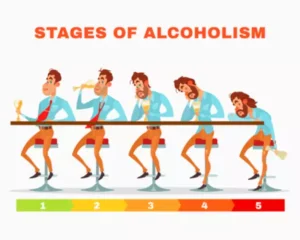
Status epilepticus in the setting of ethanol withdrawal should be treated according to standard protocols, including the use of phenytoin. The long-term administration of anticonvulsants for uncomplicated ethanol withdrawal seizures is unnecessary and possibly dangerous. Some alcoholics abruptly withdraw from both alcohol and anticonvulsants, thereby increasing the risk of status epilepticus. In are alcohol withdrawal seizures dangerous the past several years, dramatic advances have been made in understanding the short- and long-term effects of alcohol on the central nervous system. These advances have provided new insight into the pathophysiology of alcohol withdrawal seizures. In contrast to epileptic seizures, alcohol withdrawal seizures originate in brainstem systems and involve unique cellular and molecular mechanisms.
Alcohol withdrawal syndrome: mechanisms, manifestations, and management
The authors report that over 90% of alcohol withdrawal seizures occur within 48 hours after the last drink. Many dependent drinkers can stop drinking without experiencing severe withdrawal. However, intercurrent illness (trauma, fever, hypoxia) can contribute to severe withdrawal.

Alcohol Withdrawal Delirium
When the seizure begins during the aura stage, it may be called a partial seizure or a simple focal seizure. If it comes with warning signs, you could experience deja vu, intense anxiety, muscle twitches, loss of bowel or bladder control, numbness or tingling, nausea, and confusion. However, if you’re experiencing some of these symptoms, it could also mean you are about to experience a potential symptom that is particular to alcohol withdrawal called delirium tremens. Those who have a history of detoxification are more likely to experience seizures during alcohol withdrawal.
- However, if you’re experiencing some of these symptoms, it could also mean you are about to experience a potential symptom that is particular to alcohol withdrawal called delirium tremens.
- The prodrome stage can last for 10 minutes and involves some of the first signs that a seizure may be about to happen.
- Ambulatory withdrawal treatment should include supportive care and pharmacotherapy as appropriate.
- When that depressant is removed, you may feel a sudden lack of its rewarding effects, leading to nervousness, insomnia, and anxiety.
- It is interesting to speculate that extrasynaptic GABAA receptors may be activated by spillover of GABA when GABAergic interneurons are intensely activated, such as during a seizure discharge, thus producing negative feedback.
- The only way to fully prevent alcohol withdrawal seizures and other symptoms of withdrawal is to not drink large quantities of alcohol.
- Also known as DTs, an estimated 2% of people with alcohol use disorder and less than 1% of the general population experience them.
When Do Alcohol Seizures Occur? Recognizing and Managing the Risks
- Binge drinking and alcohol withdrawal together can cause seizures, even in people not previously diagnosed with epilepsy.
- Symptoms of AWS are often treated with sedatives called benzodiazepines.
- Alcoholic hallucinosis is characterized by visual, auditory, or tactile hallucinations and is hallmarked by an intact sensorium, in contrast to delirium tremens (DTs) [32,33].
- Alcohol withdrawal is one of the most common causes of adult-onset seizures.
- These programs involve working with a team of mental health professionals in a group and individual setting.
- The side effects of Ativan when used off-label for alcohol withdrawal are expected to be similar.
Your CNS must work harder to overcome the depressant effects of alcohol to keep your body functioning. Each of these symptoms can increase in intensity depending on the severity of the withdrawal. When you drink, the alcohol suppresses certain neurotransmitters in your brain. Behavioral health treatment for alcohol problems is often (but not always) covered by insurance.
- Early recognition and treatment of alcohol-related seizures are important to prevent development of status epilepticus.
- Depressants like alcohol can cause your muscles to relax, but withdrawal can cause tremors, muscle tightness, and seizures.
- Patients with mild to moderate withdrawal symptoms without additional risk factors for developing severe or complicated withdrawal should be treated as outpatients when possible.
- Individual and group therapy sessions can help to address some of the underlying causes of your alcohol addiction.
- Alcohol may negatively affect sleep, and sleep disruptions may trigger seizures.

What happens when seizure medication is mixed with alcohol?



